Litter Trackers: Understanding litter transport in Melbourne’s waterways
Litter is a significant problem in waterways and most of the sources of litter arise from our suburban streets. Litter tracking studies using plastic bottles with small GPS tracking devices inside collected data to show how far and how quickly litter travels through drains and waterways to the sea.
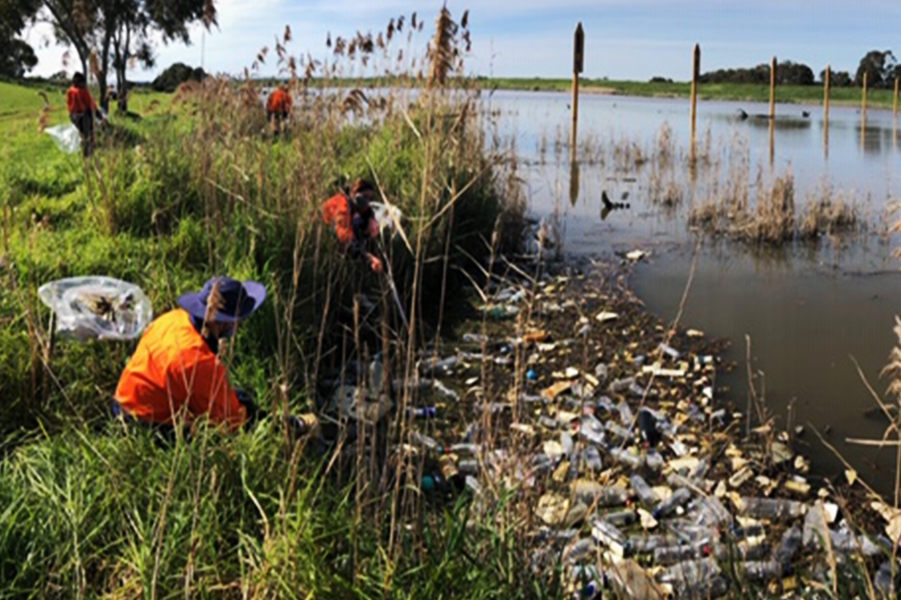
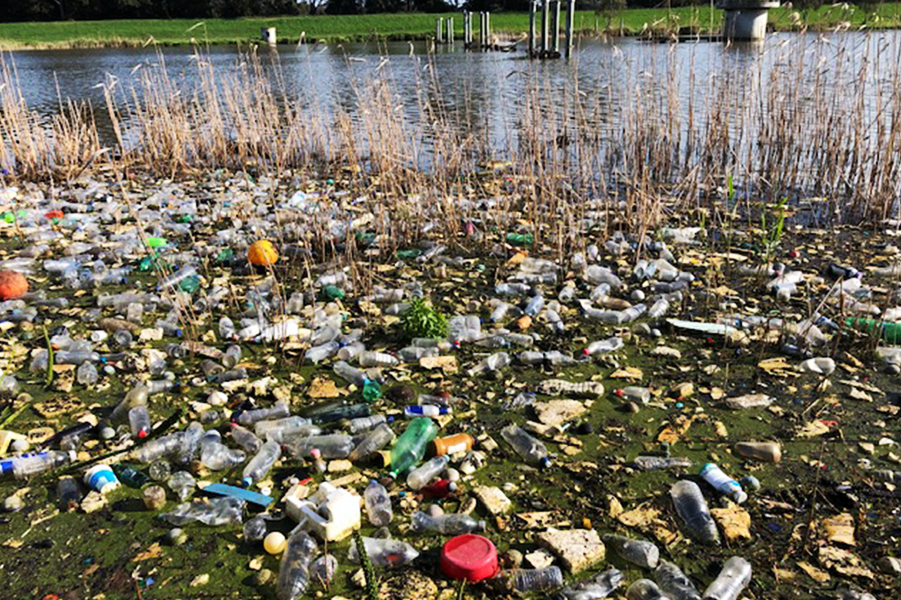
Litter is a big, expensive problem
Litter and rubbish dumping is consistently rated by the community as one of the biggest threats to waterways and its important to all three of the social values of the Strategy: Amenity, community connection and recreation.
Litter is expensive to manage. Local government across Victoria spends over $94 million per year on litter management and street cleaning.
Litter reduces water quality, can entangle and harm animals such as platypus, and ruins our city’s natural beauty. To build a more sustainable and liveable future for Melbourne, we need healthy waterways – and that means we need to tackle our litter problem at the source.
Where does all the litter in waterways come from?
Ninety-five per cent of litter that washes up on Port Phillip Bay beaches begins its journey into our waterways after being dropped on suburban streets. From cigarette butts to plastic bottles, most of what we drop on our streets is washed into the stormwater system by rainfall. From there it is caught in waterways or travels to our bays and washes onto our beaches.
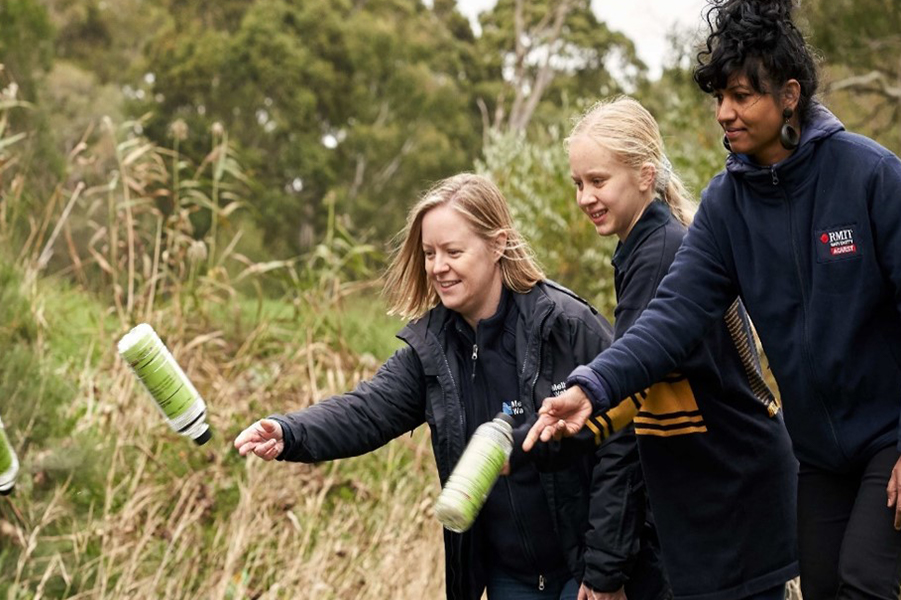
Tracking litter using GPS
To discover just how precisely litter makes its way from these suburban streets through stormwater drains to our waterways and beaches, Melbourne Water partnered with the Aquatic Environmental Stress Research Group (AQUEST) at RMIT University to carry out a ground-breaking Litter Trackers project.
Launched in May, 2019, GPS-tracked bottles were tossed into creeks and rivers all over Melbourne, from Werribee to Gisborne and from Healesville to Frankston. The project is the first of its kind for Victoria, and only the second time that litter has been GPS-tracked in Australian waterways.
RMIT University scientists worked in collaboration with Melbourne Water, local primary and high schools, and community groups to deploy 100 GPS-tracked bottles in 20 locations across Melbourne’s catchments.
Seabrook Primary School’s Renee Easson said the litter trackers project sparked enthusiasm and passion into the students.
“Thank you so much for inviting Seabrook Primary School to the litter launch. On the walk back to school, the students started picking up litter. Once we got back, they went to categorise it between recyclable and general waste”, she said.
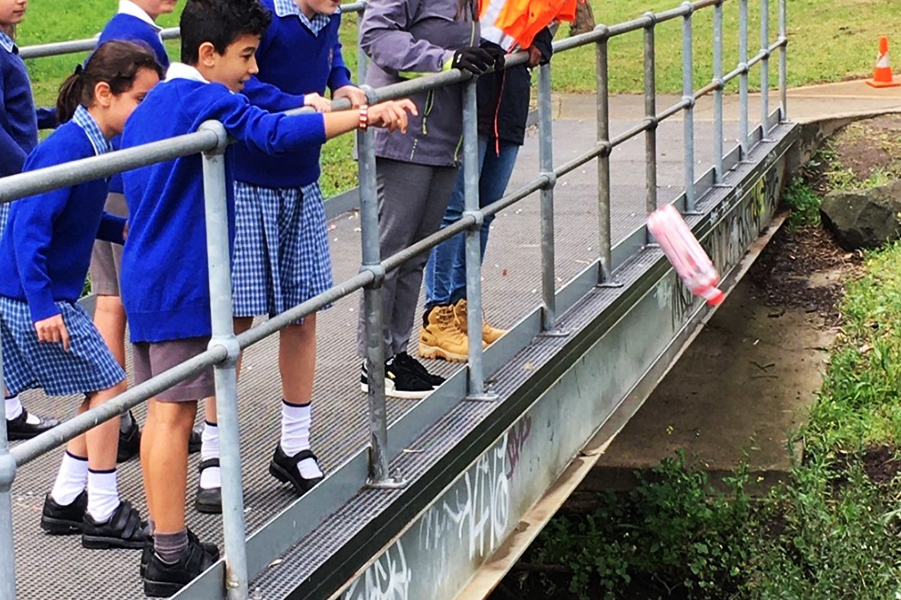
You can see the results for yourself
Data was collected from 20 rivers and creeks and attracted more than 400 participants including 18 schools and 20 community groups. Results included online interactive maps that allowed anyone to follow the bottles and discover how litter travels through our waterways. Results showed some litter makes it all the way to the bay while other times it is caught and remains very close to where it was dropped.
Evidence of how far the litter travelled can be viewed at RMIT’s Litter Tracker website.
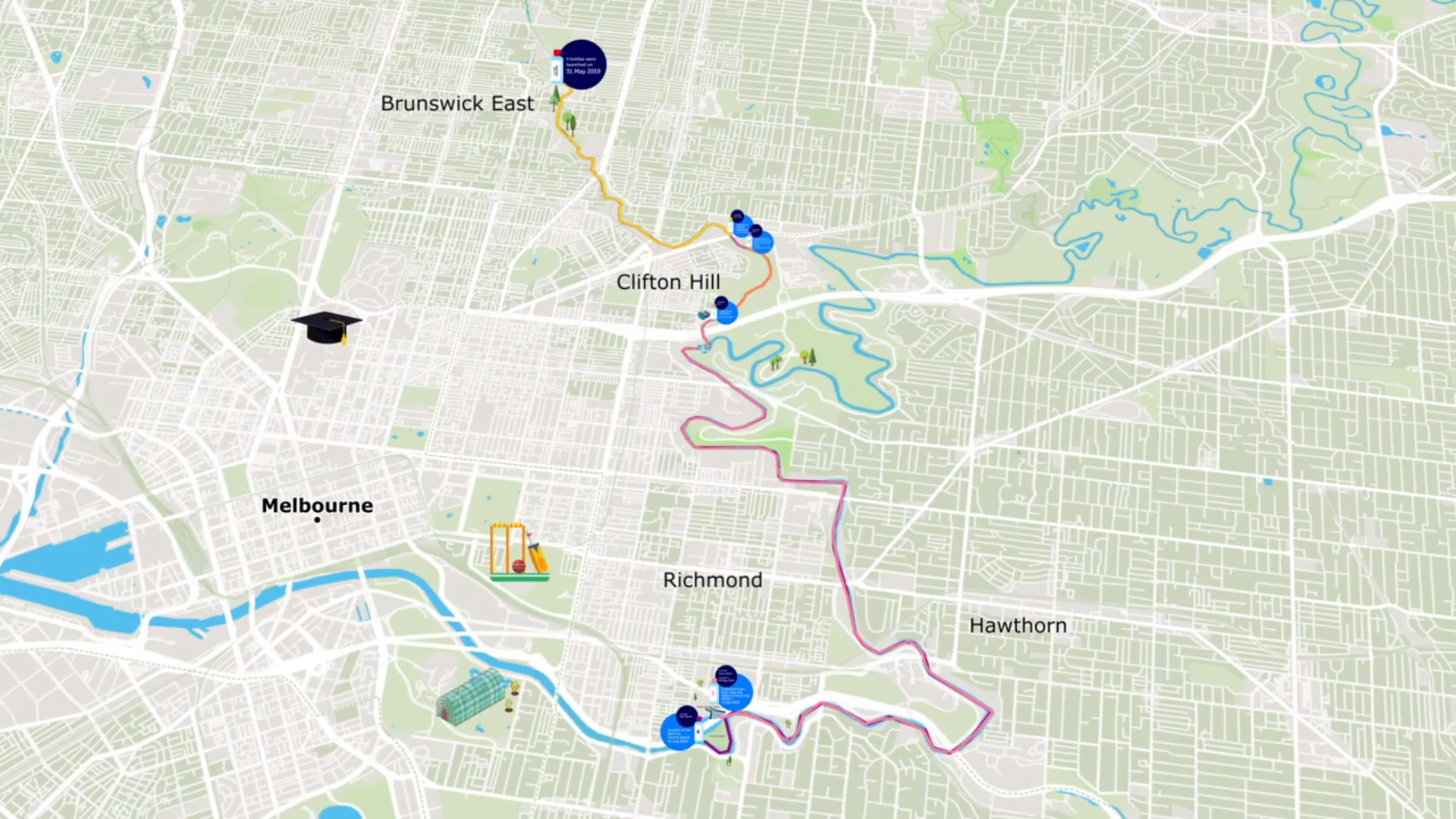
RMIT project leader, Dr Kavitha Chinathamby, believes the Litter Trackers Project gives all of Melbourne the chance to see the true environmental scale of our litter problem and shows how we can all be part of the solution.
“Everyone can get on board with driving this change and create a cleaner, healthier future for our waterways and bays,” she said.
“The litter trackers project enabled our local and global community to re-engage with an old problem in a new and exciting way by refreshing the discussion on litter. It brought together different parts of the community with a common vision and enabled storytelling and ownership of waterways.”
AQUEST are looking forward to continuing this project with further litter tracker releases in the community.